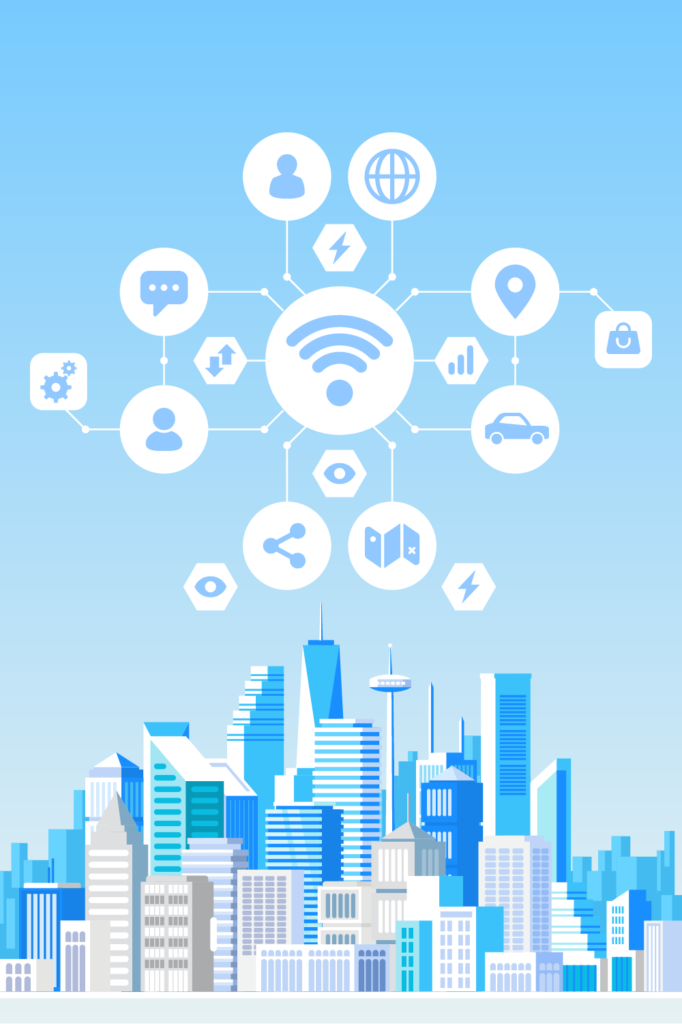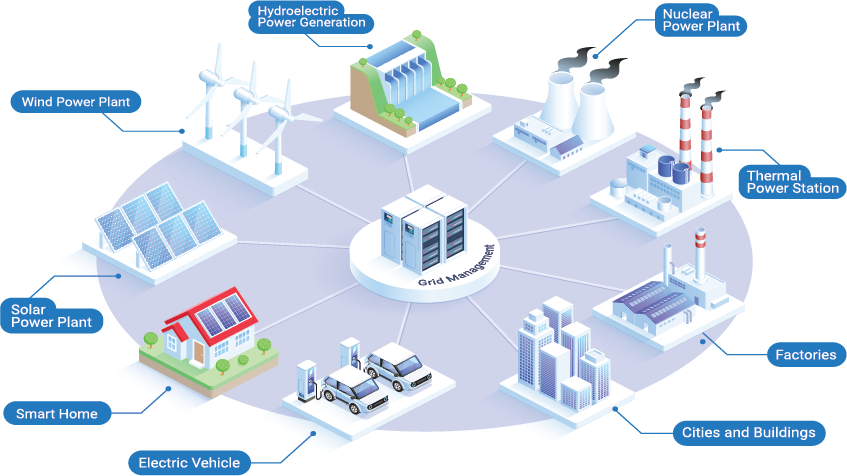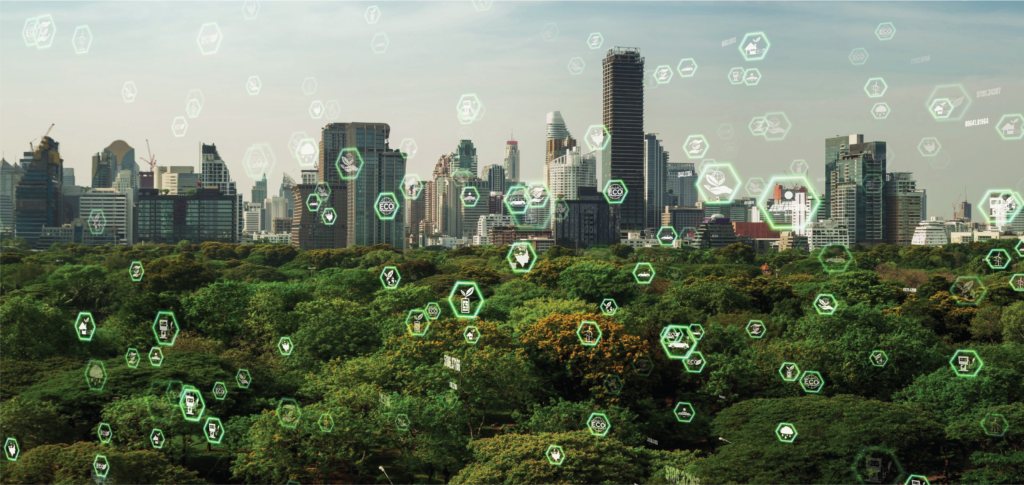Smart Grids & Smart Cities
To consider ourselves truly sustainable, it is no longer enough to simply produce renewable energy. We have to think further ahead to achieve true energy independence.
With the exponential growth of technology, comes great opportunity. We can take advantage of the latest in renewable energy tech, combined with our renewable energy strategy, to create something with even more potential and security for the future – a smart grid.
By leveraging new technology such as Artificial Intelligence and Internet of Things, we can create a self-sustaining system that automatically manages power production in the most optimum way. For example, it would utilise solar panels during the day, whilst building up a reserve of water to generate hydro-electric power during the night. At the same time, it would use reserve energy to produce hydrogen for both energy storage and to turn back to energy during peak demand times. On top of this, we can sell the hydrogen surplus to hydrogen fuel stations or even use it in our own company vehicles.
Hydrogen is a highly effective way of storing intermittent energy and enabling a new clean mobility service.

Hydrogen is produced in the station from water and electricity. The station is connected to the renewable energy source of the building (solar/ wind/ hydro etc.) and integrates into the energy management system of the latter to be controlled in real time according to the energy production, energy surpluses and building needs.
Renewable energy, such as residential and commercial solar power, plays an increasing role in the demands on distribution grids and the overall complexity of predicting fluctuating power needs. Power storage, consumer power generation, and automated home energy management systems are also impacting distribution and grid management. Utility companies need more visibility and control, but they do not always have access to data on related systems and assets.
Optimization of grids requires increased data-based insight, along with improved manageability across legacy and modern systems. Robust embedded controllers or IoT (Internet of Things) gateway controllers help utilities and energy companies gather, filter, and analyze data from the edge to the cloud. This provides essential insight into usage patterns and identifies areas where grid performance can be optimized.

As smart grids are developed and rolled out, more and more services will be connected. This will create a ‘Smart City’.
A smart city is an ecosystem between the industry, the government, municipalities and academia. The smart city ecosystem is a framework that is predominantly composed of ICT and Smart energy to develop, deploy and promote sustainable development practices to address growing urbanization challenges. A smart city network looks across every aspect of a city’s operations to use technology to improve outcomes, optimize efficiency and boost citizen well-being.
Our vision for the Berze project is to develop it in to a miniature model of a smart city. It will be set up so that it can monitor and harvest data not only of energy production but also of storage, consumption, seasonal changes etc. This wealth of data will allow us to develop new tools and strategies to optimize the smart grid and smart city ecosystems and fine-tune our equipment.
Since the hydro-electric turbine at Berze works independently from the grid, we can create a fully self-sustainable system that can then be scaled for any application.

Every project is Unique
At MP Industries, we strongly believe that every project is unique and should be treated as such. There are many ‘out of the box’ solutions but these don’t always fully suit the application. Our approach is different.
Get in touch with our team to discuss your requirements and begin the journey to your tailor-made solution.
Contact Us
Get in touch to discuss your requirements with our always helpful and friendly team.
